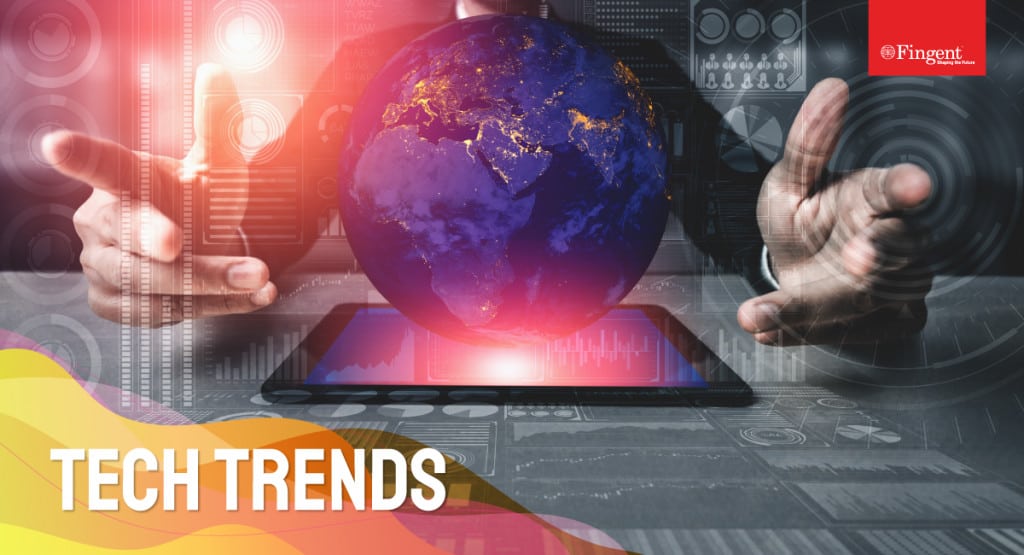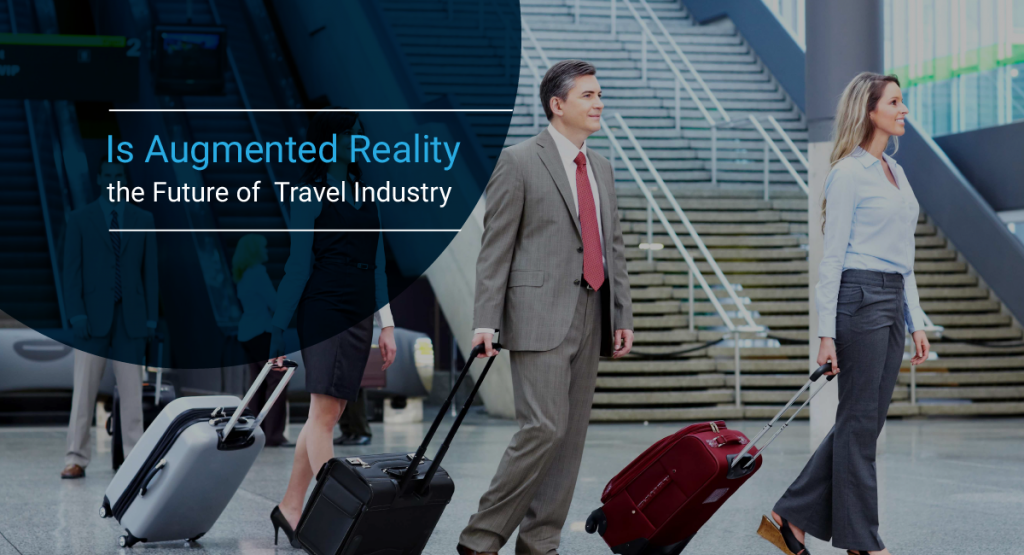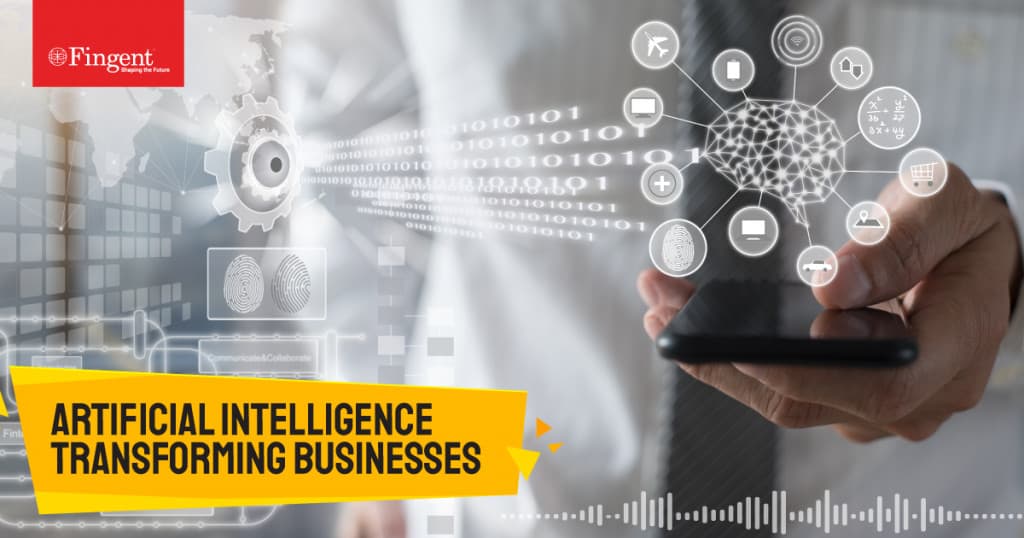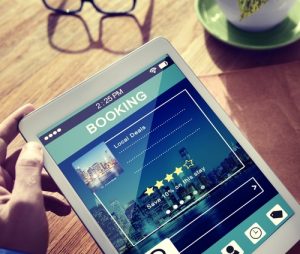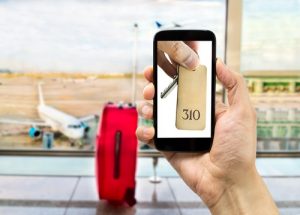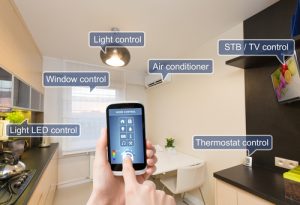Tag: hotel technology
Instead of reaping one of the highest revenue growth-spurts, the hospitality industry faced the toughest-time in industry history, due to the COVID-19 pandemic.
How the hospitality industry can leverage technology for a stronger resurgence
While the industry is known as an early embracer of digital disruption, many brands struggle to gain customer recognition. Surveys reveal that even before the COVID-19 pandemic, 72% of the guests were more likely to return to a hotel having tech-led services they expected. With the onset of the pandemic, these expectations have only increased.
A recent survey by Deloitte Digital Study suggests that over 60% of travelers prefer to stay at a hotel having contactless services such as keyless room entries, voice assistants, communication with the staff using phones, and contactless check-ins and check-outs.
That said, this year looks promising. Travel bubbles and corridors are forming, facilitating new flows and movement and consequently hope for the hospitality industry. Some players in the industry are even leveraging technology to combat the losses due to the pandemic.
Read more: How Hotels are Using Technology for Competitive Advantage
Here, we discuss five cutting-edge technologies that can help the hospitality industry revive its lost glory in 2024.
1. Chatbots
Many hospitality industry players have incorporated chatbots in their websites, social media accounts, apps, and even phone systems.
Instead of calling a travel agent or visiting several websites to read reviews from travelers, users can simply ask their questions to chatbots. Chatbots can use data from users, interactions, and products to provide personalized deals and recommendations. Additionally, bots can make reservations, compare prices and products, and even request quotes to create convenience for customers.
Chatbots can be customized to understand complex questions, detect upset customers, and immediately direct them to a human agent who can answer them.
Interestingly, chatbots offer a good ROI. They reduce operational costs while enabling support agents and enhancing the overall customer experience.
With advances in technology, natural language processing, and machine learning, chatbots can be trained further to answer more inquiries and recognize more inputs.
Read more: 11 Tech Trends That Will Disrupt Businesses in The Next 2 Years
2. Cloud and Internet of Things
Cloud-based solutions help us access anything we want remotely. Along with IoT (Internet of Things) devices, cloud-based applications can help streamline operational complexities such as assigning staff duties, coordinating housekeeping, and confirming compliance with newly enforced safety and hygiene standards.
IoT helps with the remote monitoring and management of physical things in the hotel or resort premises, such as TVs, door keys, and even thermostats. Voice-based intelligent assistants such as Siri, Google, and Alexa also help control the connected devices remotely.
Simply put, hotels can benefit tremendously if their primary services are internet-based. Technology offers guests better control over their stay and experience and enables the hotel staff to get a more detailed picture of what works and what needs to be upgraded. Enhanced tools can provide guests with a superior experience, personalized communication systems, better assistance, and hygiene standards.
Read more: How Is Augmented Reality Reshaping Travel and Tourism
3. AI-powered systems
The hospitality industry will soon see a surge in the use of Artificial Intelligence or AI-powered systems. The system can include facial recognition with mask detection and thermal camera integration to improve safety and security within the premises.
Geofencing technologies can help brands build location-awareness apps to drive real-time updates and rebuild consumer confidence related to the tourism sector’s safety. It can even allow brands to send out push notifications such as instructions, directions, special offers, or promotions to customers based on their current location or journey map. These lead to a seamless experience when combined with smart queues and touchless check-ins upon the guests’ arrival or prompt them for payment on their smartphones during the check-out.
Read more: 9 Examples of Artificial Intelligence Transforming Business Today
4. Mobile payment technology
Hospitality service providers can leverage mobile technology and data derived from digital payment tools such as Amazon Pay to offer personalized in-store and online purchase experiences to their customers. Typically, mobile wallets apply near-field communication (NFC), Magnetic Secure Transmission (MST), and even sound waves to communicate with the point of sales without touching it for in-store purchases. For online payments, digital wallets can autofill payment information using biometrics or fingerprints to confirm the payer’s identity for added security.
Mobile banking, QR, payment links, and applications are a few additional functionalities that brands can adopt to augment and enhance the mobile payment process.
Leveraging technology to accept mobile payments come with several benefits:
- While traditional payments can take around 30-45 seconds to complete, a contactless transaction is completed within 15 seconds.
- Mobile payment includes two-step authentication, the limited amount that can be expended per transaction, and built-in features to prevent duplicate transactions. Additionally, the mobile payment data is heavily encrypted when stored and transferred.
- Businesses can link the mobile wallet approach to loyalty programs, push notifications, special deals, and other value-added services.
- Touchless/ contactless payment allows customers to keep their hands clean and restricts their exposure to the virus.
5. Data Science
Restaurant chains and groups are excellent data science candidates as they generate a significant amount of data both internally and externally (social media, email, inventory, POS systems, phone calls, etc.). The pandemic is pushing restaurants and hotels to invest in systems and training their staff to make decisions based on data that would otherwise be impossible to process.
A few ways restaurants have used big data to improve their efficiency and increase sales are:
- Using ordering trends and marketing analytics, restaurants can identify their most popular and least popular dishes and how a particular location and season can impact what gets ordered. This helps them optimize their menu and make informed decisions.
- Big data allows hotels/restaurants to recognize patterns and predict factors that affect the inventory counts.
- Through transaction data, loyalty program data, and social listening, restaurants can identify what can improve customer experience and what makes them come back.
Using data to optimize the menu can impact customer retention. Using data to improve customer retention can help modify the menu.
There’s no denying that going digital is the norm today, and the hospitality industry will have to continue to adopt technology to meet the shifting customer demands.
Read more: 10 Services Offered by Fingent to Prepare Your Business for the Future of Digital Innovation
Fingent helps build custom software solutions, mobile-first workplace platforms for the hospitality industry that can automate your workflows, reduce your staff turnover, and enable you to deliver superior customer experiences.
Looking to rebuild and reinvent your hospitality business? Talk to an expert right away.
Stay up to date on what's new

Featured Blogs
Stay up to date on
what's new



Talk To Our Experts
Hotels leave no stone unturned in today’s extremely competitive business environment, and a key weapon in their arsenal is technology. However, with technology in a constant state of flux and constantly unlocking new opportunities to improve customer satisfaction and boost internal efficiency, hotels have their task cut out leveraging technology to remain one-up on competition.
6 Ways Hotels Can Use Technology to Improve Guest Experience
1. Online Bookings
The most apparent manifestation of technology in the hotel industry is hotel bookings. The internet also obviously makes accessing information easy, and transparent. Data such as check-in and checkout times, rates, facilities on offer, and other key details allow guests to make informed decisions. Surveys show that around 48% of smartphone users in the U.S are comfortable researching, booking and planning their entire trip to a new travel destination using only a mobile device.
Popular websites such as booking.com, agoda.com, hotels.com, and even websites of hotel chains, such as ibis.com and others are now the default way people search for room, deals and make bookings. There are already websites that compare deals and offers from various websites, and with technology advancing, the day is not far off when potential guests can experience their room in a virtual reality setting, before making a booking.
According to the Oracle Hospitality report, 35% of guests said they would prefer the ability to schedule room cleaning and 26% said they would like to receive a smartphone notification to show if their room was being cleaned.
Improved analytics may also allow guests to select hotels with facilities that best match their tastes, interest, and convenience. Hotels that do not embrace technology and facilitate such options for their guests stand to miss out big time.
2. Online Reputation
Today’s customers are highly knowledgeable and see through marketing pitches instantly. They are more likely to take official communication, even if true, with a pinch of salt. They increasingly rely on social media to seek reviews and recommendations from genuine travelers. In such a state of affairs, hotels are increasingly investing in enhancing their social media presence through brand ambassadors, brand advocates, influencers and others. Large hotels now even have dedicated social media teams, scanning the internet, and responding to bad reviews, hoping to make amends.
A positive social media reputation works wonders in terms of hotel occupancy. About 87% of TripAdvisor users feel more confident when they read travel reviews, and about 98% find such reviews “accurate of the actual experience.”
Technology has shifted the balance of power toward guests, and hotels have no option but to work harder to match customer expectations.
3. Enhancing Guest Experience
The latest technological advances contribute greatly to making check in and check out, and other guest related processes easy, seamless, and fast. Self check-in and checkout through electronic kiosks, online check in, online payments, and more all does away with the lines and long wait times, both major pain points for long. The latest technology allows guests use their smartphones as the room key, enabling them to proceed straight to their rooms. Likewise, guests can check out with a few clicks of the smartphone, and avoid the reception altogether.
Hilton Worldwide already offers guests the ability to check in and out, select their room, check maps and make extra requests or purchases, from their smartphones. For those who think such benefits are too exaggerated, all they need to do is try and check in or check out of a Las Vegas hotel on Sunday noon.
Here are some other ways hotels are using hi-tech to enhance their guest experience:
-
Voice Controlled Room
Wynn Hotel & Resort, Las Vegas has implemented Amazon Echo to maximize their customer benefits. With Amazon’s Alexa voice assistance, guests of Wynn can control the lighting, temperature, draperies, and TV in their rooms. Here’s a video that shows how it’s all done.
-
Robotic Butlers
Aloft in Cupertino has implemented hi-tech features to optimize hospitality for guests. In addition to keyless entry via Aloft smartphone app and Apple TV in every room, Aloft Cupertino employs a robotic butler called Botlr to deliver 24/7 customer services of all kinds.
-
Digital Concierge
Renaissance Midtown Hotel, New York, features an interactive wall called The Discovery Portal. It’s a virtual concierge where guests are allowed to choose from categories of entertainment, dining and much more by stepping onto a circular hologram projected on the floor. In addition, the hotel also offers in-person concierge service to provide guests with in-depth information on what they have found in The Discovery Portal.
-
Robotic Luggage Storage
Yotel in New York is using robotics and artificial intelligence to delight guests while making the most of small spaces. To make check-in process more convenient, Yotel has touch-screen kiosks instead of front desk staffs and friendly robots to store luggage. Check this video to learn how guests at Yotel uses Robotic Luggage Storage.
4. Enhanced Targeting
From a marketing perspective, technology allows hotels to target their prospects and customers better. A basic manifestation is hotels reminding business guests about their meeting room schedules, targeting specific groups, such as those who have arrived for a convention, with special deals or offers, and more. The ability to connect with targets in real time reduces marketing costs while increasing effectiveness at the same time.
5. Streamlining Internal Processes
Technology allows hotels to become lean and mean, and make their internal processes more seamless and effective.
A customer relationship management (CRM) suite allows organizing and managing information from a central console, enabling guest relations executives to get the complete history of the customer when interacting with her.
A marketing automation suite makes it possible to customize interactions with guests, send automated emails to guests as required, and do more with less effort.
The future holds much more promise. The hotel could, for instance, leverage deep analytic to structure a package comprising of facilities best suited for the guests. For instance, if the guest is coming for a vacation, the package may include a sightseeing trip, and business visitors may be given access to meeting rooms.
6. Smart Solutions
Smart appliances and home automation solutions are a godsend for the hotel industry, with automated temperature control, lighting, alarms, TV, radio, blinds, and other technological innovation contributing to improved customer satisfaction, and improved services, while reducing overheads at the same time. Guests may, for instance, turn the air conditioner on through an app installed on their smartphone, to ensure optimal temperature when they enter the room. For the hotel, this is a much cost-effective solution compared to leaving the air conditioner on at all times.
With travelers becoming increasingly tech-savvy, hotels who do not embrace the latest technology to deliver innovative services to their guests stand out to lose big time. However, keeping abreast of the changing technology, and developing cutting-edge solutions based on such technology is a big challenge for hotels, and would, in any case, be a drag on their core focus.
Hotels would rather do well to partner with our experienced and talented team to develop technology related solutions. Get in touch with us today to know how our extensive experience in developing highly customized solutions for hotel and related industries can benefit your business.
Stay up to date on what's new

Featured Blogs
Stay up to date on
what's new




